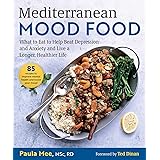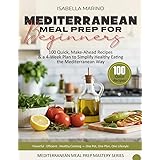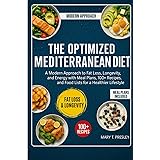Many individuals embark on a weight loss journey. Often, initial efforts involve dietary adjustments. One common strategy is optimizing liquid calories. Our accompanying video offers a concise tip. It suggests swapping regular milk for alternatives. Specifically, almond, oat, or coconut milk are recommended. Lukewarm water is another viable option. This simple switch targets a key dietary component. It profoundly impacts overall caloric intake. Understanding the nutritional science behind this choice is crucial. We explore this concept in depth.
Optimizing Caloric Density for Weight Loss Success
Sustainable weight loss demands a caloric deficit. However, nutrient density remains paramount. Regular dairy milk, particularly whole milk, contains significant fat. This elevates its caloric footprint. For instance, one cup of whole milk typically delivers 150 calories. It provides around 8 grams of fat. This macronutrient profile can accumulate quickly. Especially in frequent smoothies or shakes. Unnoticed liquid calories sabotage progress. Dietary shifts must be strategic.
The Macronutrient Shift: Beyond Simple Calories
Replacing high-calorie dairy milk is a tactical move. Plant-based alternatives offer distinct advantages. They generally present lower caloric values. Their macronutrient profiles also differ. This impacts satiety and metabolic response. Studies confirm plant milks support caloric reduction. They aid in achieving a negative energy balance. This is fundamental for body fat reduction.
Almond Milk: A Lightweight Contender for Weight Loss
Unsweetened almond milk is a popular choice. It boasts a remarkably low caloric density. One cup often contains just 30-40 calories. This figure is significantly lower than dairy milk. Its fat content is minimal. Typically, it has 2.5 grams per serving. Carbohydrates are also very low. This makes it ideal for many dietary protocols. It supports a reduced energy intake. Almond milk provides a neutral flavor. This versatility enhances smoothie palatability. It prevents unwanted caloric spikes. Research highlights its utility in caloric management. A 2017 review noted benefits in energy-restricted diets.
Micronutrient Profile and Benefits
Almond milk is often fortified. It includes calcium and vitamin D. These are crucial for bone health. Its low glycemic index is also beneficial. It minimizes blood sugar fluctuations. This helps control appetite. Stable blood glucose prevents cravings. These are common impediments to weight loss. The fiber content is negligible. However, its low-calorie status outweighs this. It remains a superior alternative.
Oat Milk: Balancing Creaminess and Caloric Control
Oat milk provides a creamier texture. This mimics dairy milk more closely. Unsweetened versions are best for weight loss. One cup generally contains 80-130 calories. This is higher than almond milk. However, it is still less than whole dairy milk. Its primary benefit lies in its soluble fiber. Beta-glucans are a key component. They promote significant satiety. This reduces overall food intake. Clinical trials demonstrate fiber’s role. It enhances feelings of fullness. This translates to fewer calories consumed later.
Digestive Health and Sustained Energy
The soluble fiber in oat milk aids digestion. It supports a healthy gut microbiome. A balanced gut influences metabolism. It can impact fat storage. Oat milk offers a steady energy release. Complex carbohydrates prevent energy crashes. This helps maintain consistent activity levels. It indirectly supports greater caloric expenditure. Its slightly higher carbohydrate count is negligible. Especially when balanced by fiber content. This makes it a strategic choice.
Coconut Milk: Tropical Flavor with Caloric Considerations
Coconut milk comes in various forms. Canned coconut milk is very rich. It is high in saturated fats. This type is generally not suitable for weight loss. However, refrigerated carton coconut milk is different. This lighter version is what the video implies. One cup contains approximately 45-50 calories. It has around 4 grams of fat. It is a palatable option. Its distinct flavor enhances smoothies. It offers a tropical twist.
Medium-Chain Triglycerides (MCTs) and Metabolism
Coconut milk contains Medium-Chain Triglycerides (MCTs). Research suggests MCTs boost metabolism. They are more readily converted to energy. This avoids fat storage. A 2018 study indicated improved fat oxidation. However, the quantity in carton coconut milk is low. It is not as concentrated as MCT oil. Nevertheless, it contributes to overall health. It offers a pleasant, low-calorie alternative. It can diversify your smoothie routine.
Lukewarm Water: The Ultimate Calorie-Free Diluent
For the strictest caloric control, water is supreme. Lukewarm water adds no calories. It dilutes concentrated ingredients effectively. This reduces smoothie density. It enhances hydration simultaneously. Staying hydrated supports metabolic functions. It can also suppress appetite. Often, thirst is mistaken for hunger. Opting for water is a robust strategy. It directly eliminates all liquid calories. This ensures your shake is only nutrients. This is an unparalleled choice for precise weight loss management.
Hydration and Nutrient Absorption
Adequate water intake is vital. It facilitates nutrient transport. It also aids waste elimination. Both processes are crucial for health. They support efficient metabolism. Water also maintains cellular function. These contribute to overall vitality. This enhances workout performance. Better workouts contribute to greater caloric burn. This supports your weight loss objectives.











